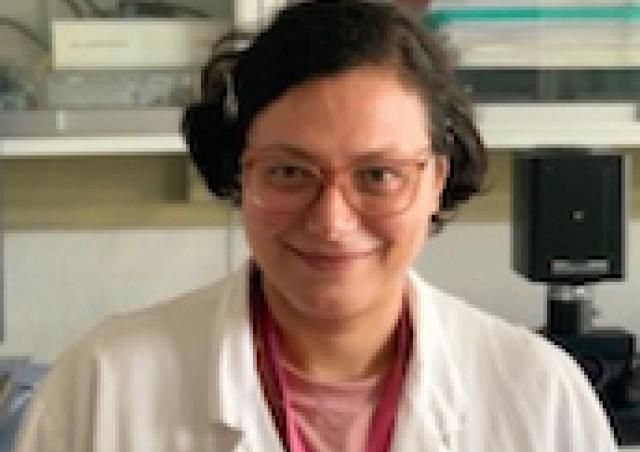Despite vaccination and the development of symptomatic treatments, approximately 5 to 10% of people with COVID-19 progress to a severe or critical form. These patients mainly develop severe pneumonia that progresses to acute respiratory distress syndrome accompanied by the spread of the virus from the respiratory tract to other sites, targeting innate immune cells such as macrophages. Respiratory aggravation usually occurs during the second week after the first symptoms appear. It coincides with coagulation disorders including episodes of poorly understood platelet micro-aggregation, particularly in the lungs, even in people with no history of cardiovascular disease. However, anticoagulant treatment of COVID-19 patients is of limited efficiency.
With their essential role in haemostasis, platelets combine well-established immunological functions contributing to inflammation and can, in certain viral pathologies, harbor and transport viruses. In addition, recent studies have shown that megakaryocytes, the precursor cells of platelets, are able to migrate from the bone marrow where they originate, to the lungs where they locally produce platelets. These cells end their short life captured by the innate immunity cells (macrophages) which they activate. Platelets could therefore be involved in the pathophysiology of severe COVID in several ways: in the genesis of hemostasis disorders (thromboses); by promoting viral dissemination during their ubiquitous circulation; finally in the "cytokine storm" triggered by the macrophages that they have activated.

The team led by Morgane Bomsel hypothesized that platelets, from megakaryocytes infected with SARS-CoV-2 in the marrow or lungs, could carry viruses contributing to the hemostasis disorders and viral dissemination observed in COVID-19, and could contribute to the critical development of the disease. Indeed, in seriously ill patients, the team, in collaboration with the AP-HP intensive care department of the Raymond Poincaré hospital (Prof. Djillali Annane, University of Versailles-St-Quentin-en-Yvelines), hospitals Ambroise Paré (Guillaume Géri) and Cochin (Pr. Jean Daniel Chiche) and the anatomopathology department of Pr. Geffroy de la Grandmaison (AP-HP Raymond Poincaré) showed that in autopsy tissues, megakaryocytes in the marrow and lung capillaries were infected. These infected megakaryocytes are capable of producing infected platelets which reach the lungs where, by interacting with pulmonary macrophages, they trigger a cytokine storm rich in factors affecting the integrity of the vessels and in inflammatory molecules.
The study reveals that the detection of these infected platelets in the blood of patients with severe COVID-19 in the first two weeks after the onset of the first symptoms, was a predictive marker of the fatal outcome in the almost all patients (in 19 cases out of 20 analyzed). In addition, the viruses contained in the platelets remain infectious. Once captured by macrophages, infected platelets transmit the infection to them in vitro, according to a process that is blocked by targeting the GPIIbIIIa protein on the surface of the platelet by the antiplatelet agent Abciximab.
Through this study, the researchers underline the immunological role of platelets and their major involvement in severe COVID-19 at three levels: i) first, in hemostasis disorders with the formation of the thrombus (clot blocking the vessels) , ii) also in viral dissemination where platelets are a Trojan horse for the infectious virus, protecting it from being destroyed by the immune system and iii) the exacerbated cytokine storm.
These adverse effects could be clinically targeted all at once using specific anti-platelet drugs, increasing the chances of patient survival. The researchers' results also make it possible to predict the fatal prognosis early enough to anticipate appropriate medical management.
Reference
Zhu A; Real R; Capron C; Rosenberg A; Zhu J; Cottignies-Calamarte A; Massé JM; Moine P; Bessis S; Godement M; Geri G; Chiche JD; Valdebenito S; Belouzard S; Dubuisson J; Lorin de la Grandmaison G; Eugenin E; Chevret S; Annane D; Cramer-Bordé E; Bomsel M. Platelets carry infectious SARS-CoV-2 in fatal COVID-19, Cell Mol Life Science 2022, 16 June 2022. https://doi.org/10.1007/s00018-022-04318-x











